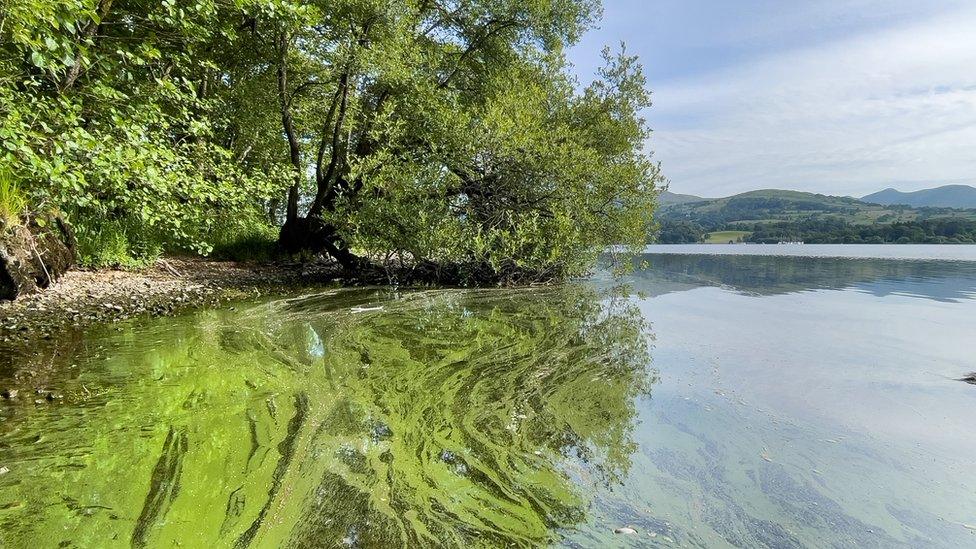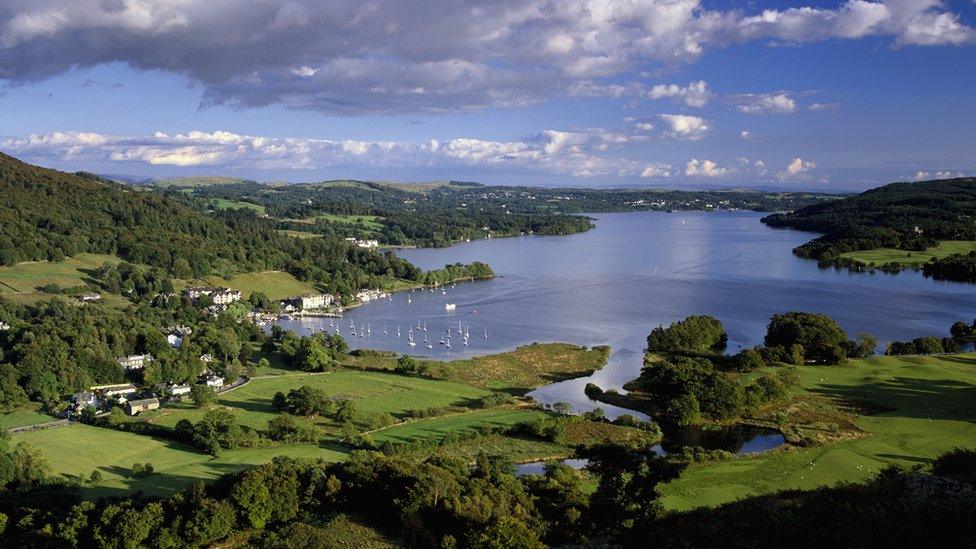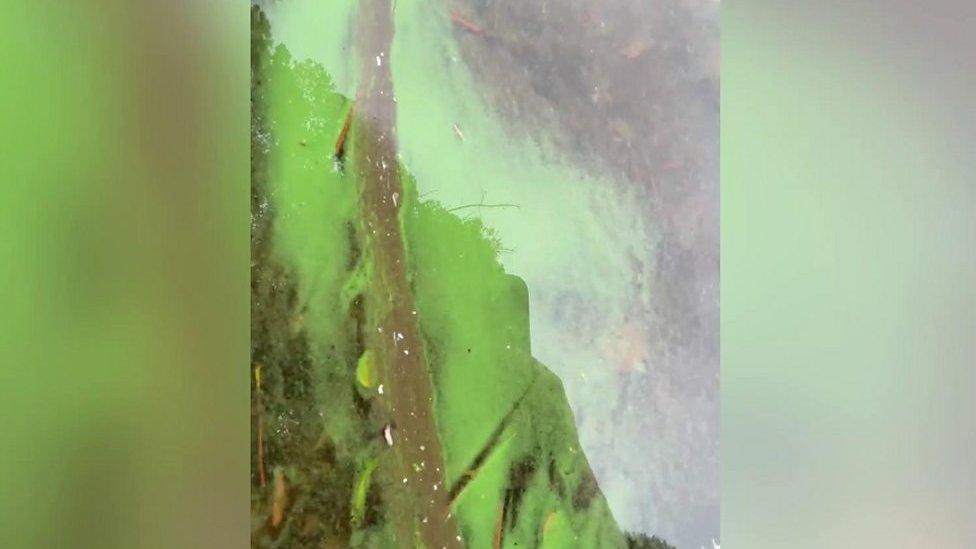Windermere on verge of 'catastrophe', campaigner warns
- Published

A number of blue-green algae blooms have been confirmed on Windermere this month
England's largest lake is on the verge of "catastrophe" unless urgent action is taken to improve its water quality, a conservationist has warned.
Blue-green algae blooms, which make humans ill and can be fatal to animals, are increasing on Windermere, zoologist Matt Staniek said.
The blooms also reduce aquatic oxygen levels, which affects fish numbers.
Organisations responsible for the lake's water quality say their long-term plan is tackling the issue.
Algal blooms feed on nutrients from phosphate, and Mr Staniek says about 40% of the phosphate in Windermere, in the Lake District, comes from sewage from waste treatment sites owned by United Utilities.
A further 30% is from septic tanks belonging to homeowners and holiday lets with agricultural sources, such as run-off from farming land and animals entering the water, responsible for another 30%.
'Not enough being done'
A petition calling for the government to address Mr Staniek's concerns has attracted almost 50,000 signatures.
"It's been happening for decades and we're approaching an environmental catastrophe, but not enough is being done," he said. "The government is not acting quickly enough.
"We could end up with thousands of dead fish on the shoreline, and if people start to get ill then they'll stop coming and millions of pounds of tourism income will be lost."
A number of potentially harmful blooms have been confirmed on Windermere in recent weeks, external, which in humans can cause rashes, eye irritation, vomiting, diarrhoea and fever and muscle and joint pain.
The Environment Agency states on its website that blue-green algae occurs naturally and becomes more likely during warm, dry weather.
A spokesman said the organisation had been working with partners since the late 1990s to improve Windermere's water quality and that it had been "pressing United Utilities to make progressive improvements to its treatment works on the lake".
He added: "There are also general binding rules and permits in force which require owners of privately owned septic tanks and small sewage treatment plants to ensure they minimise the risk of pollution - monitoring data indicates levels of pollution are starting to drop."
'Complex' factors
United Utilities said it had implemented measures to significantly reduce the phosphate contribution from its systems including a £40m project at Windermere completed in 2020 and the upgrading of sewage treatment plants there and at Ambleside.
"Our treatment works are meeting their Environment Agency permits, not just for phosphorus removal, which is currently at the lowest achievable limits, but also for bacteria which is removed by the UV treatment we have on our treatment plants and storm overflows at Ambleside and Windermere.
"The factors affecting water quality in Windermere are complex and, without targeted action by multiple sectors, including agriculture, we will not see the changes we all want."
A spokeswoman added Mr Staniek's petition "contains a number of inaccuracies and misleading statements".

Follow BBC North East & Cumbria on Twitter, external, Facebook, external and Instagram, external. Send your story ideas to northeastandcumbria@bbc.co.uk, external.
- Published2 December 2021

- Published2 December 2021
